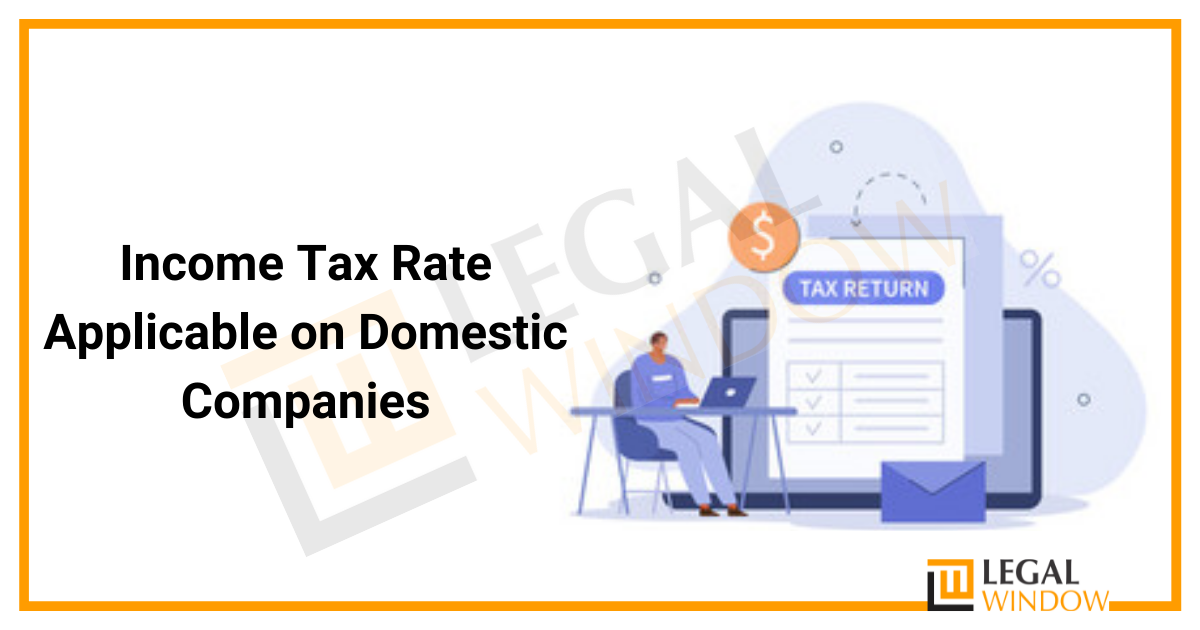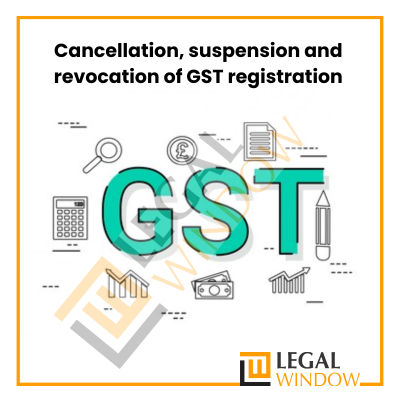
Indian taxes are classified into two types: direct taxes and indirect taxes. When it comes to direct taxes, they are imposed on the revenue derived by various corporate organisations over the course of a fiscal year. There are various types of taxpayers who are enrolled with the Income Tax Department and pay taxes at various rates. Individuals and corporations, for example, are not taxed at the same rate.
As a result, Direct Taxes are further subdivided as follows:
- Personal Income Tax: The personal income tax is the income tax paid by individual taxpayers. Individuals are taxed at various rates based on tax slabs.
- Corporate Income Tax: The income tax paid by domestic and foreign companies on their income in India is referred to as corporate income tax (CIT). The CIT is levied at a specific rate prescribed by the Income Tax Act, subject to annual rate changes in the Union Budget.
| Table of Contents |
Indian Corporate Tax
A corporate is a legal entity that is distinct and distinct from its shareholders. Under the Income-tax Act, both domestic and foreign corporations are required to pay corporate tax. A domestic company is taxed on its total income, whereas a foreign company is only taxed on income earned within India, that is, income accrued or received in India.
For the purposes of calculating taxes under the Income Tax Act, the following types of companies could be defined:
- Domestic Company: A domestic company is one that is required to register under the Companies Act of India, as well as one that is registered in another country but has administration and monitoring in India. Private and public companies are both included in the definition of a domestic company.
- Foreign Company: A foreign company is one that is not recorded under the Indian Companies Act and has administration and monitoring outside of India.
Company’s Earnings
Before discussing the tax rate and how the tax will be calculated on a company’s income, it is a must to first understand the different types of income that a company can earn. Here’s what it is:
- Profits generated by the business
- Gains on Capital
- Income from property rented
- Income from other sources such as dividends, interest, and others
Section 115BAA – New Tax Rate for Domestic Companies
Section 115BAA was added to the Income Tax Act of 1961 to provide domestic companies with the benefit of a lower corporate tax rate. According to Section 115BAA, domestic companies have the option of paying tax at a rate of 22% plus a sc of 10% and a cess of 4%. If such domestic companies meet certain conditions, the effective tax rate will be 25.17 per cent beginning in FY 2022-23 (AY 2020-21). If the company chooses Section 115BAA, it will not have to pay MAT tax.
Conditions outlined in Section 115BAA’s
All domestic corporations have the option of paying income tax at the rate of 22% (plus applicable surcharges and cess) if the following conditions are met:
- Such businesses should not be eligible for any exemptions or incentives under various income tax provisions. As a result, such company’s total income shall be calculated without:
- Claim any deduction, particularly those accessible for units founded in special economic zones under Section 10AA.
- Claim additional depreciation under section 32 and investment allowance under section 32AD for new plant and machinery purchased in notified backward areas in the states of Andhra Pradesh, Bihar, Telangana, and West Bengal.
- Companies that manufacture tea, coffee, and rubber can claim a deduction under Section 33AB.
- Companies engaged in the extraction or production of petroleum, natural gas, or both in India may claim a deduction for deposits made to the site restoration fund under Section 33ABA.
- Using Section 35 to claim a deduction for expenditure on scientific research or an amount paid to a university, research association, National Laboratory, or IIT.
- Using section 35AD to claim a deduction for capital expenditures incurred by any specified business.
- Making a claim for a deduction for amount spent on an agriculture extension project under section 35CCC or athe skill development project under section 35CCD.
- Claiming a deduction under chapter VI-A for certain incomes allowed under sections 80IA, 80IAB, 80IAC, 80IB, and so on, excluding deductions under sections 80JJAA and 80M.
- The above losses are considered to have been permitted and are not eligible for carry forward or set off in subsequent years, which means that if the company chooses 115BAA, the opportunity to claim set off is forever lost.
- Such businesses must exercise this option in order to be taxed under Section 115BAA on or before the due date for filing income tax returns, which is usually the 30th of September of the assessment year. The deadline for filing itr for Domestic Company as 31st October 2022, for companies which are are required to get accounts audited. & 31st July 2022 for taxpayers (non-audit cases)
- The possibilities should be submitted in Form 10-IC, as advised by the CBDT. The form must be submitted online with a digital signature or an electronic verification code.
- There are no turnover restrictions, and the company does not have to be new; any established business could relocate into this section at any time.
Effective tax rate
The new effective tax rate that would impose on domestic companies that take advantage of Section 115BAA is 25.168 per cent. The breakdown of such a tax rate is as follows:
| Base tax rate | Surcharge applicable | Cess | Effective tax rate |
|---|---|---|---|
| 22%> | 10% | 4% | 22*1.1*1.04 = 25.168% |
Under section 115JB of the act, such businesses would not be obligated to pay Minimum Alternate Tax (MAT).
Conclusion
On September 20, 2019, the Government of India enacted Section 115BAA through the Taxation (Amendment) Ordinance 2019. This ordinance amends the Income Tax Act of 1961 in several ways. Changes such as a corporate tax rate reduction for domestic firms as well as manufacturing firms were announced. In addition, the MAT rate has been reduced from 18.5 percent to 15%.
CA Pulkit Goyal, is a fellow member of the Institute of Chartered Accountants of India (ICAI) having 10 years of experience in the profession of Chartered Accountancy and thorough understanding of the corporate as well as non-corporate entities taxation system. His core area of practice is foreign company taxation which has given him an edge in analytical thinking & executing assignments with a unique perspective. He has worked as a consultant with professionally managed corporates. He has experience of writing in different areas and keep at pace with the latest changes and analyze the different implications of various provisions of the act.
Categories
- Agreement Drafting (23)
- Annual Compliance (11)
- Change in Business (36)
- Company Law (147)
- Compliance (88)
- Digital Banking (3)
- Drug License (3)
- FEMA (17)
- Finance Company (42)
- Foreign Taxation (6)
- FSSAI License/Registration (14)
- GST (117)
- Hallmark Registration (1)
- Income Tax (199)
- Latest News (34)
- Miscellaneous (164)
- NBFC Registration (8)
- NGO (14)
- SEBI Registration (6)
- Section 8 Company (7)
- Start and manage a business (20)
- Startup/ Registration (126)
- Trademark Registration/IPR (40)
Recent Posts
- Understanding the provisions of GST Audit and Adjudication April 20, 2024
- April, 2024 Tax Compliance Tracker: Income Tax & GST Deadlines April 18, 2024
- Managing Director & Whole Time Director in a Private Limited Company April 17, 2024
About us
LegalWindow.in is a professional technology driven platform of multidisciplined experts like CA/CS/Lawyers spanning with an aim to provide concrete solution to individuals, start-ups and other business organisation by maximising their growth at an affordable cost.








